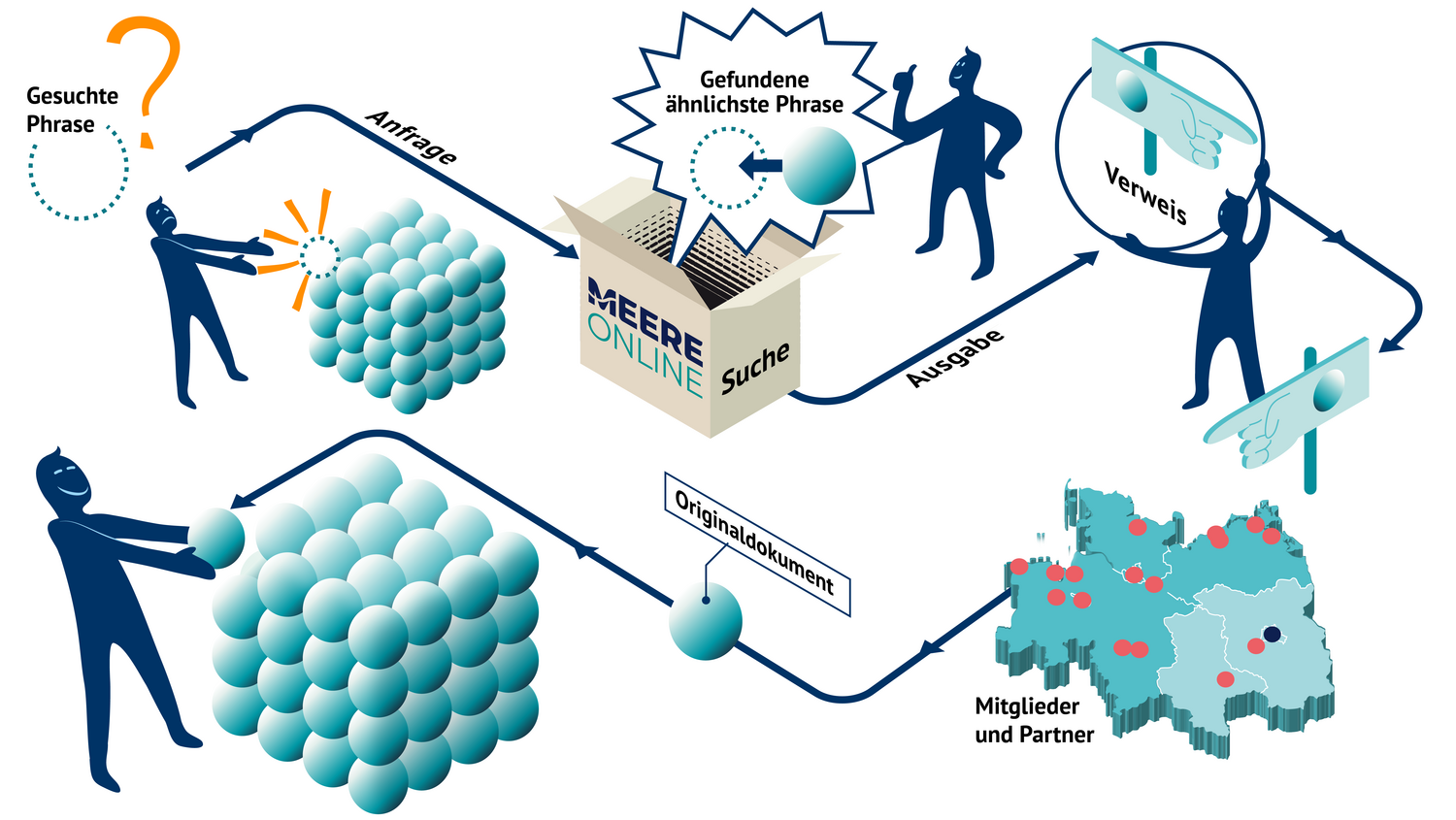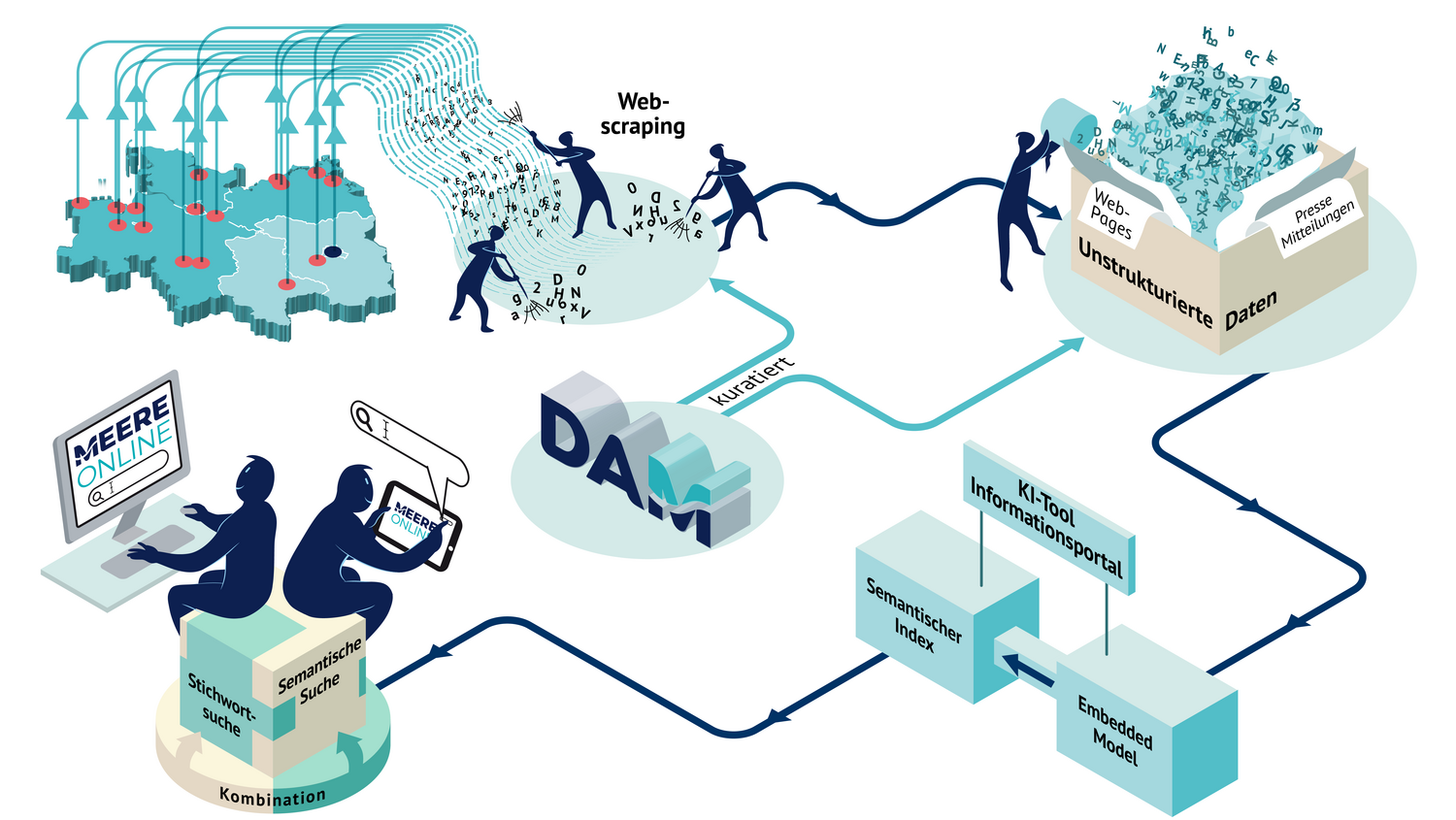You can use the search function in Meere Online to find scientific information. Enter your search query as a whole phrase if possible, e.g. ‘Ozean Online bundles knowledge from oceanography’. The AI-supported search of Meere Online then searches the data set for the most similar phrases.
The hit list shows you the most suitable results first - the more similar the phrase found is to your query, the higher up it appears. Each result links directly to the source, so you can see the relevant information in the original document with just one click.
What is special about the Meere Online Search?
The Meere Online search exclusively searches the websites of German marine research organisations and trustworthy marine-related sources. Meere Online thus offers targeted access to science-based information.
The search function combines a classic keyword search with a semantic search based on text similarities. This combination allows users to recognise related topics and find relevant information more precisely.
What data is recorded?
Meere Online searches the websites of German marine research organisations and trustworthy sources relating to the sea. This is supplemented by press releases from the marine research institutions of the German Science Information Service (idw) from the Oceanology / Climate section.
Meere Online thus guarantees access to well-founded, science-based information from marine research. Here is a complete list of the recorded pages.
How is the data set recorded?
Websites are recorded using “scraping.” This means that all machine-readable texts are read from the websites and collected in a database.
Websites with content that goes beyond marine research are checked using keywords. Accordingly, only information that contained at least one of these keywords and thus contained a marine reference was included in the data set. This ensures that only marine-relevant content is included and false-positive search results are excluded as far as possible.
What technology is behind the search?
The semantic search tool for Meere Online was developed by the German Research Centre for Artificial Intelligence (DFKI). It uses technologies such as vector search and machine learning to understand the meaning and context of search queries. Unlike traditional search methods that rely solely on keyword matching, semantic search interprets a query based on the underlying concepts and intent behind the words, providing relevant and contextualised results - even if the exact terms of a query do not appear in the results.
This semantic search is combined with the precision of a keyword search for Meere Online. While the semantic search uncovers the broad meaning of a query, the keyword search ensures that exact matches and important terms are retrieved from the database. This hybrid approach makes it possible to capture the intent and nuances of complex search queries while ensuring that specific, relevant keywords are not overlooked.









